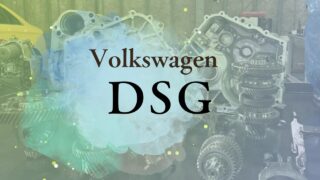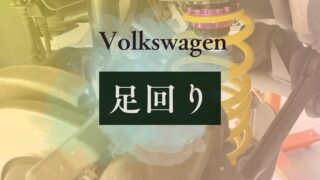Volkswagen (VW), the German car brand admired around the world, is not only known for its powerful driving performance but also for its exceptional braking systems. No matter how well an engine performs, a car cannot be driven safely without effective brakes.
Brakes are critical safety components. Over time, wear and tear or driving conditions can lead to brake performance issues.
This article explains the signs of brake trouble in VW vehicles, possible causes, risks of ignoring symptoms, average repair costs, and simple inspection and prevention tips you can follow.
Common Types of Brake Repairs and Costs (Estimate)
| Service | Estimated Cost (incl. tax) | Notes |
|---|---|---|
| Brake pad replacement (front or rear) | ¥20,000–40,000 ($135–270) | Using genuine VW parts |
| Brake disc (rotor) replacement (one axle) | ¥40,000–80,000 ($270–540) | Usually done with pad replacement |
| Brake fluid replacement | ¥8,000–15,000 ($55–100) | Recommended every 2 years |
| Caliper overhaul | ¥30,000–60,000 ($200–400) | Reusable if condition allows |
| Brake booster replacement | ¥80,000–150,000 ($540–1,000) | Includes labor |
| ABS unit replacement | ¥200,000–400,000 ($1,350–2,700) | Expensive due to electronics |
Note: Prices vary by model and repair shop. Minor fixes cost far less than major component replacement.
What Is a Brake System?
The braking system of a car is more complex than simply stepping on a pedal.
In a VW, several key parts work together to ensure smooth and safe deceleration and stopping:
- Brake pads
- Brake discs (rotors)
- Brake calipers
- Brake fluid (transmits hydraulic pressure)
- Brake booster (amplifies pedal force)
VW’s disc brakes offer highly stable stopping power, but regular maintenance is essential for optimal performance.
Signs of Brake Problems in VW Vehicles
If your brakes are failing, your car’s behavior will change noticeably. Watch out for these warning signs:
1. Unusual Noises When Braking
Squealing, grinding, or scraping sounds can indicate worn brake pads or damaged rotors.
2. Changes in Brake Pedal Feel
A soft or spongy pedal may signal fluid leaks; a stiff pedal may indicate brake booster problems.
3. Poor Braking Performance
If the car takes longer to stop, worn pads or degraded brake fluid could be the cause.
4. Vehicle Pulling to One Side
If the car veers left or right when braking, it may be due to uneven brake pad wear or a stuck caliper.
5. Warning Lights
Modern VW models have brake system warning lights. If your ABS or brake system warning light comes on, visit a repair shop immediately.
Common Causes of Brake Problems in VW Cars
• Worn Brake Pads
The most common reason for brake problems.
As pads thin out, braking efficiency drops and noise increases.
• Worn or Warped Brake Discs (Rotors)
Heat and wear can cause warping, leading to vibration, noise, and poor stopping power.
• Degraded Brake Fluid
Brake fluid absorbs moisture over time, reducing hydraulic pressure and braking performance.
• Stuck Calipers
Rust or internal piston issues can cause uneven braking or excessive tire wear.
• Sensor Malfunctions
Failures in ABS or electronic stability control (ESC) sensors can trigger warning lights or erratic brake behavior.
Dangers of Ignoring Brake Problems
Failing brakes can lead to serious safety risks, including:
- Increased risk of rear-end collisions due to longer stopping distances
- Extra strain on tires and suspension, causing further damage
- Loss of vehicle control at high speeds
- Much higher repair costs if problems escalate
Brake issues are never “minor.” Always get unusual symptoms checked immediately.
DIY Inspections and Prevention Tips
You can often catch early signs of trouble with routine checks:
• Notice Pedal Feel
If the brake pedal feels different or sinks too far, visit a service shop.
• Listen for Noises
Be alert for squealing or grinding sounds when braking.
• Replace Brake Fluid Regularly
VW recommends replacing brake fluid every 2 years to maintain performance.
• Get Regular Inspections
Have your brakes thoroughly inspected not only at mandatory inspections but also during annual maintenance checks.
Final Thoughts: VW Braking System = Peace of Mind
VW’s outstanding braking systems are key to its reputation for safety.
However, even the best brakes are not immune to wear and aging.
By staying alert to changes and conducting regular maintenance, you can keep your car running safely and reliably.
Protect yourself and your loved ones by making brake care a regular habit—your safety starts with awareness.







コメント